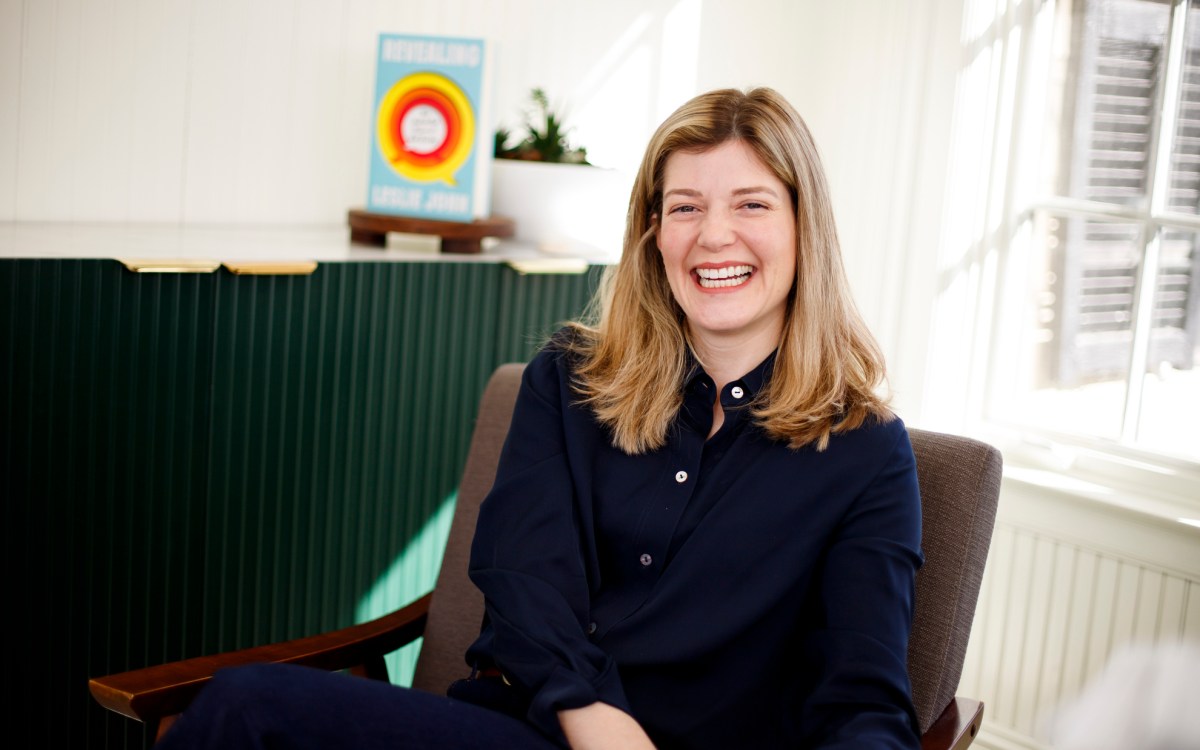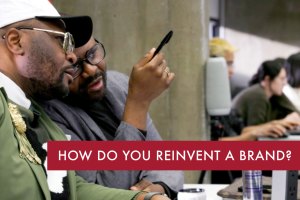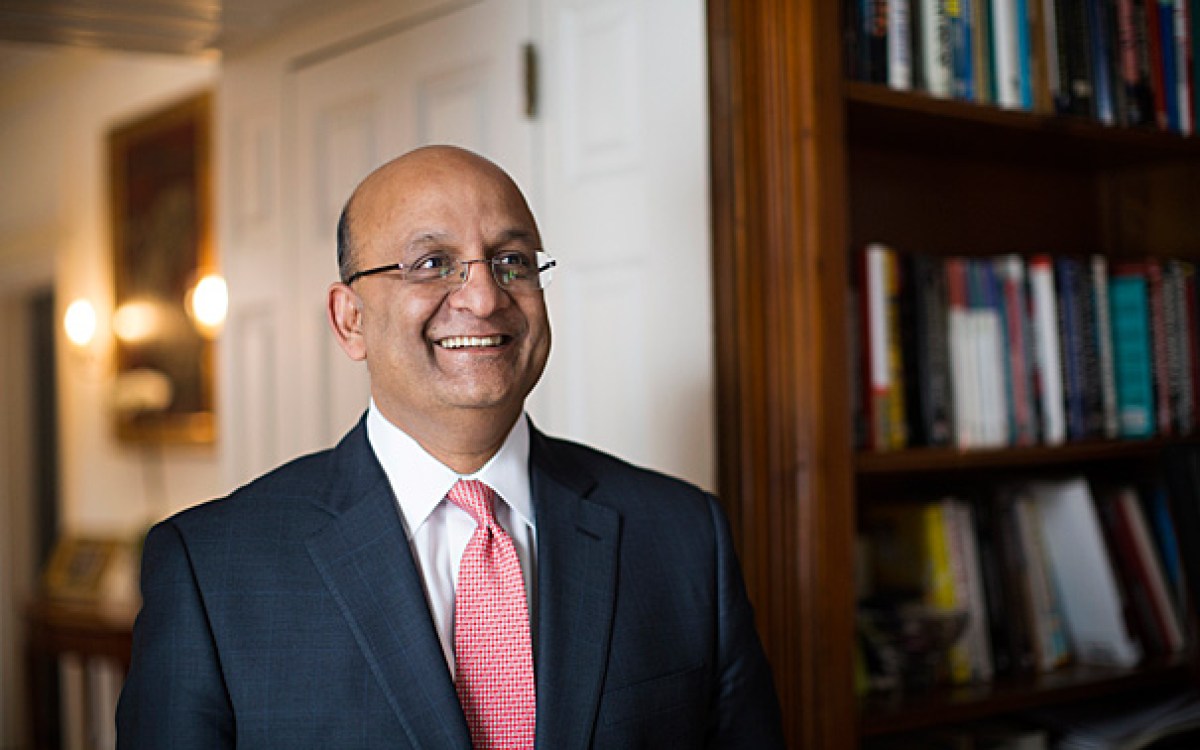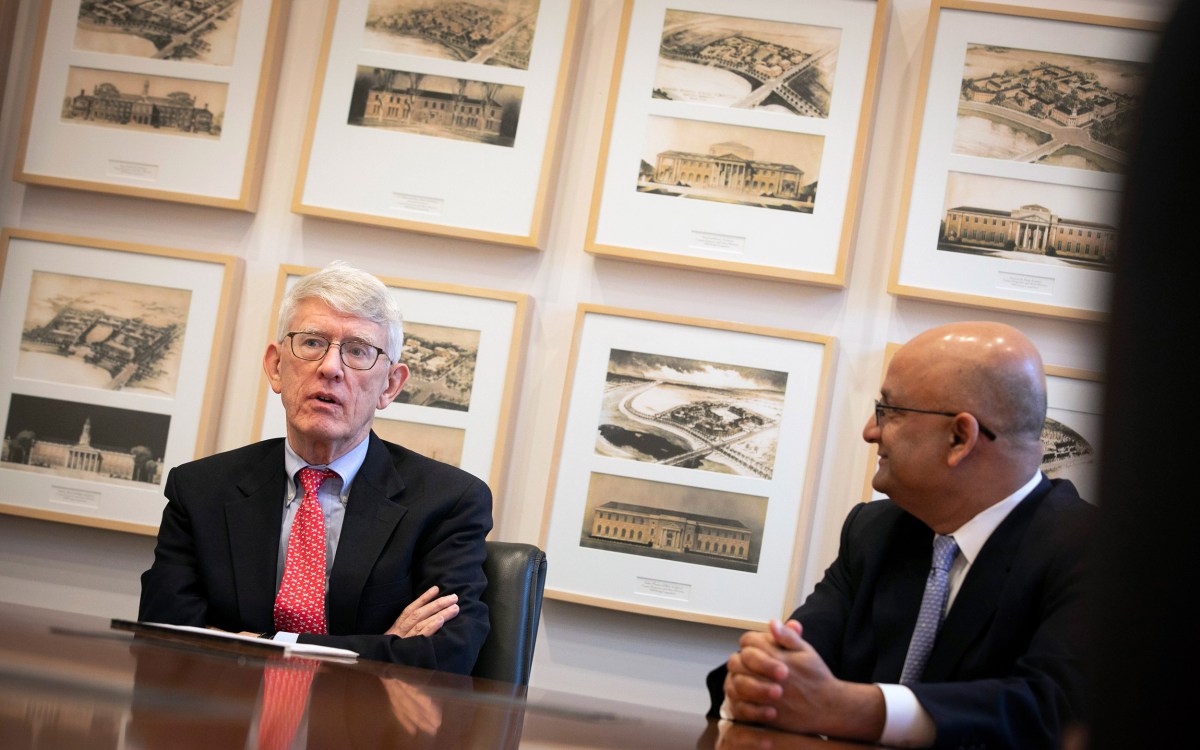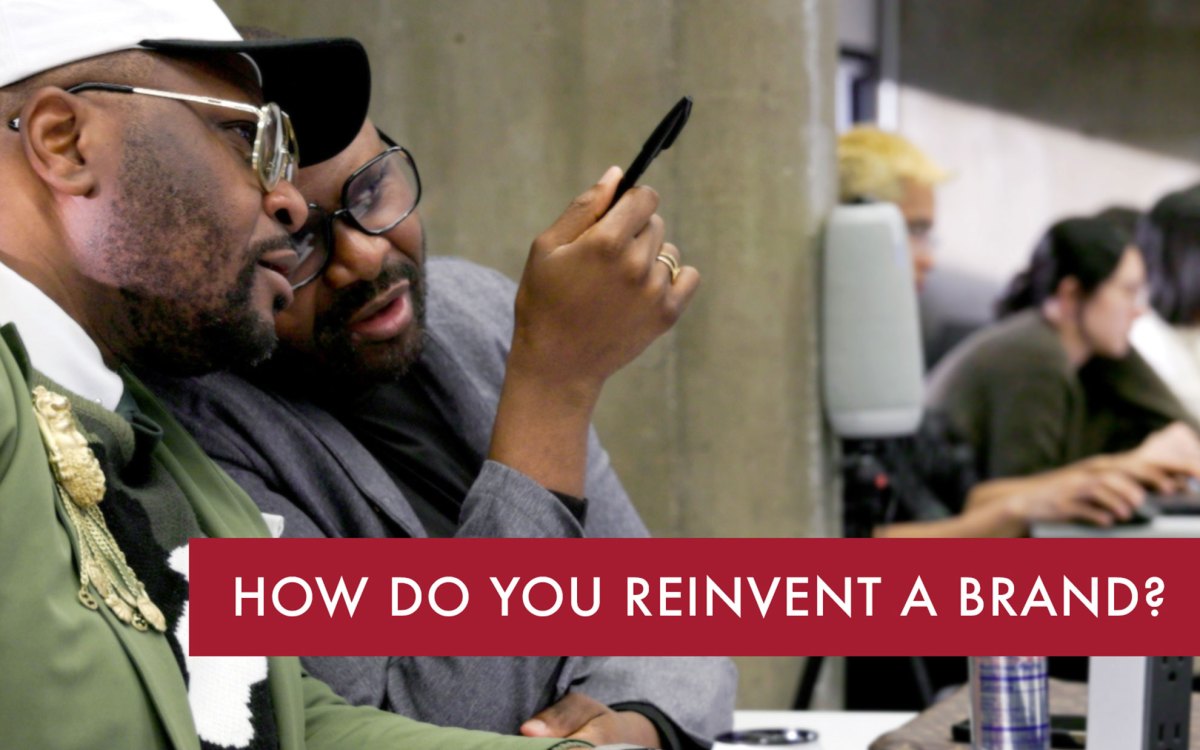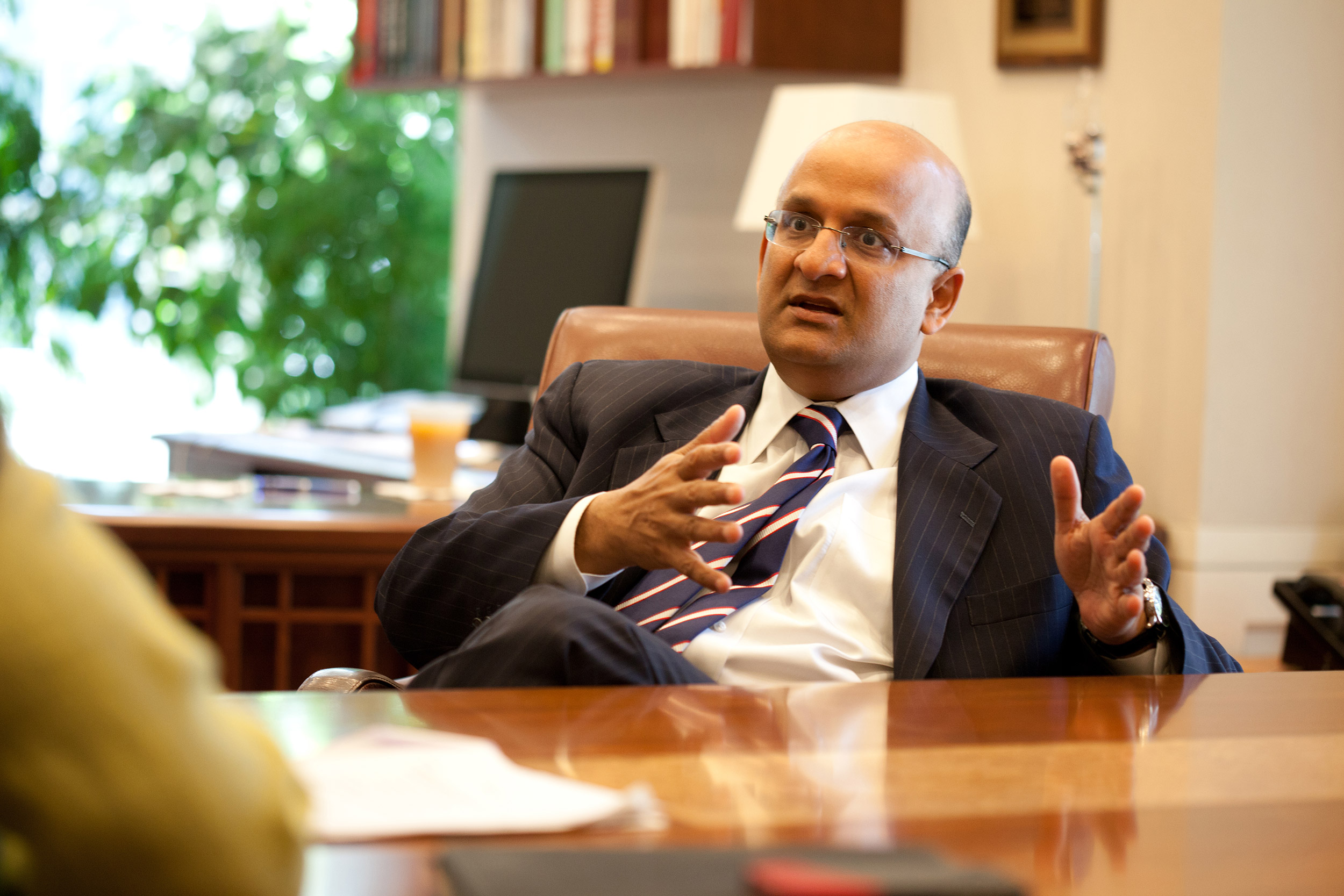
© Susan Young
Departing Business School dean recalls a consequential decade
Nohria moved to increase diversity, inclusion, and real-world opportunities for students
At the end of this month, Dean Nitin Nohria will close the books on a memorable decade leading Harvard Business School, capping a final year few will soon forget.
A scholar of leadership and organizational change, Nohria, 58, joined the Business School faculty in 1988 and was named its 10th dean in 2010. He has steered the School through the Great Recession, the coronavirus pandemic, and the recent economic crisis. As the School’s first Indian American dean, Nohria sought to get MBA students out of the classroom to work on wider-world business challenges with the debut of the FIELD curriculum. He also worked to make the School more inclusive and representative on race and gender, and announced an Action Plan for Racial Equity in September.
A chemical engineer with a Ph.D. from MIT’s Sloan School of Management, Nohria advocated for closer collaboration with the School of Engineering and Applied Sciences in advance of its relocation nearby on Western Avenue. The i-lab and Harvard Business School Online successfully launched on his watch, and Nohria chaired development of the Enterprise Research Campus project in Allston. Major capital projects, including Klarman Hall, a new, state-of-the-art auditorium, and the Chao Center and Tata Hall, which serve the School’s residential executive education programs, were commissioned and opened.
He initially planned to leave on June 30 to begin a year’s sabbatical, but in March, amid the rising pandemic, agreed to stay on while Harvard President Larry Bacow, Provost Alan M. Garber, and others completed the search for a new dean. Their selection, Srikant Datar, Arthur Lowes Dickinson Professor of Business Administration and senior associate dean for University affairs at the School, takes office on Jan. 1. In an interview, Nohria spoke about what he’s learned, what unfinished business remains, and how he feels about moving on from the job in a place that has shaped his “entire adult life.”
Q&A
Nitin Nohria
GAZETTE: In March, just as the pandemic hit, you agreed to stay on through December, delaying a planned yearlong sabbatical while the School completed its search for a new dean. Knowing what you know now, was that the right decision?
NOHRIA: I was really looking forward to my sabbatical and, if I’m being honest, these have been a hard nine months. These have not been easy times to lead the School through. And yet, if asked again, the answer would have always been yes. I love Harvard Business School. I feel a deep sense of gratitude to the School. At the time, given everything that was going on, having someone who had experience and who enjoyed the trust of the place was important to the School.
[President] Larry [Bacow], as he jokingly put it to me, said “It’s hard to recruit a new dean over Zoom, so I hope you’ll give me the time.” In the end, he probably did end up having to do more of the recruiting over Zoom than he may have imagined. I just think there was a lot going on at the University, [so] having the bandwidth to do a proper search was something that he felt was important, to make sure that the selection was done thoughtfully, and I respected that. And equally, he said, “Look, the School could use the continuity of your leadership. At this time when things are uncertain, having someone whom people trust and people have learned to trust over a long period of time can only be very helpful.” And I understood that, too. I think we’ve navigated through this time as well as we could.
GAZETTE: A leadership change amid a pandemic has to make a challenging situation exponentially harder.
NOHRIA: I must confess that I wish COVID was more behind us. I remember when I became dean, I had succeeded Jay Light, and he had led the School through the great financial crisis [of 2008-2009]. By the time he handed off the baton to me, I really felt that there was a lot of opportunity to go forward and the worst of the crisis was well behind us. I had hoped that by extending [my term] six months, my successor would have that same opportunity, and this would be more behind us. I do feel a little sad that that we’re still in the midst of it.
GAZETTE: As the semester draws to a close, and the end approaches, how are you feeling about the decision to step down?
NOHRIA: Harvard Business School has not just been a place of work for me. It’s been my home, because I live on the Harvard Business School campus. I think I’ll just miss the sense of, in every way, being a part of this place. It’s not just been my life; it has been the life of my wife, Monica, and our family. This is where we’ve lived for the last 10 years. So there’s a little bit of a sense of loss. We’re celebrating our last set of holidays in the Dean’s House. Over 10 years, you form extraordinarily close relationships with people. Yesterday, we had a retirement event. These are people who, in many cases, started at the School about the same time as me. I’ve been at this School 32 years, so many of these are people who I grew up with. You just realize the number of people I know and the number of people I’ve gotten to know even more closely in my time as dean. I’ll miss them. On the other hand, I was ready to leave in July, and I’m excited to begin this new phase of my life in January.
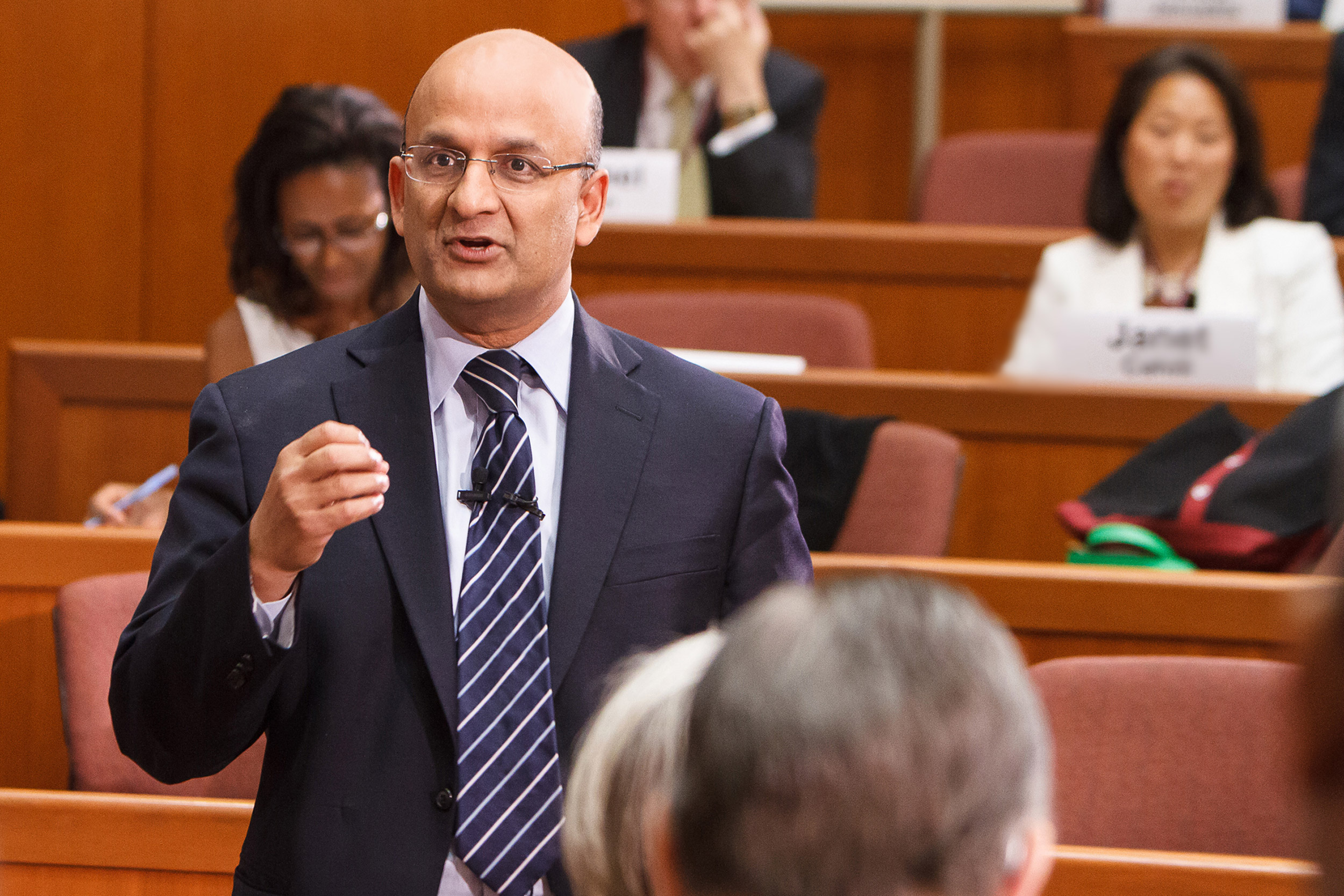
“If I have any do-over, my do-over would have been that maybe we should have started on the race journey simultaneously with the gender journey, as opposed to doing these things in sequence.”
GAZETTE: When you began in 2010, what goals did you set out to accomplish for yourself and the School, and how do you think you did?
NOHRIA: Very early on in my time as dean, I conducted a listening tour in which I ended up talking to about 500 people, where I asked the question, “What do you think the priorities should be as we begin the second century of the School’s history?” And we articulated a set of five priorities called the five I’s — Innovation in our educational programs, the Intellectual ambition to pursue important problems in business and society, the continued Internationalization of the School so that we can bring the world to Harvard Business School and Harvard Business School to the world, Inclusion so that everybody at Harvard Business School can thrive, and Integration with the rest of the University and even within Harvard Business School. I feel pretty good about the progress that we’ve made on every one of these priorities. The work is never done, so you just do have to do your part to continue to advance the work knowing that it will not be finished ever. I hope that we’ve made progress, but there’s always more work to do.
GAZETTE: What are some of the challenges that remain?
NOHRIA: One of the areas that we had been working very hard on was inclusion. We started by focusing on gender. In 2013, we celebrated 50 years of women being admitted into our M.B.A. program, and we used that occasion to really try to advance gender equity in a significant way, focusing on gaps in the areas of student achievement and satisfaction with their time at the School. In about 2013, we had begun to close some of those gaps, indicating that we made real progress on gender. In 2018, we marked 50 years of the African American Student Union at Harvard Business School. Even during that moment, we recognized that we had made less progress on race than we should have. And certainly, the events of this last summer have made us recognize, as I think so many other organizations have, that we should have been more focused on trying to address these racial questions. If I had any do-over, my do-over would have been that maybe we should have started on the race journey simultaneously with the gender journey, as opposed to doing these things in sequence.
GAZETTE: So the racial and gender equity issues are unfinished business?
NOHRIA: I think they’re unfinished. Even the gender work is unfinished business, but I think we’ve made progress. I would in no way declare victory on the gender work. That still has a long way to go. But I think the race work, we need to catch up and make progress faster and with more momentum. Now that we have a plan to achieve that, there is clarity on the work that needs to be done.
We had begun introducing more modern data science into our curriculum, such as artificial intelligence and machine learning, in the last couple of years. That work needs to be accelerated. And people are asking us to reimagine capitalism and make sure that business is seen as a productive and positive force in society, to increase trust in business. That work needs to continue, as well.
GAZETTE: It’s a difficult time for so many, and in so many areas business and higher education have not been spared. At what juncture do you leave the School, and where do you hope it’s headed?
NOHRIA: We certainly have learned how to deliver all aspects of our mission, including our educational mission, using technology. Every one of our faculty, by the end of this year, is now capable of teaching online. We have developed technology infrastructure of various kinds. For many years, we have had the idea that an MBA education should not just be a two-year experience, but an opportunity to create lifelong education. I think we may be prepared for lifelong education in a way that we never were before. Because now our students will have learned how to interact with us digitally. They used to think that the only way to stay engaged in lifelong education with the School was to come back for reunions or for one-week programs in the School. And that’s a very costly thing to do when you’ve begun your life and you’ve started your career or you have children and you start a family. Maybe this online engagement that we’ve created will make, for the first time, the opportunity for lifelong education a reality. We never thought that our executive education programs could be delivered virtually, and we’ve learned how to do that. So there’s flexibility and a lot of opportunity that has been created in terms of our educational mission.
In terms of what happens in the business world, I think through the combination of COVID and the economic challenges that it produced, as well as the race issues raised this summer, business has come to realize that there are a lot of people who are vulnerable in society and that vulnerability gets exposed even more in moments like this. So being more attentive to how we think about the resilience, the robustness, and the well-being of everyone in society is something that business became more acutely aware of during this time. And I hope that business leaders will not just view this as a moment when they need to pay attention to this, but will pay attention to it in a more long-lasting, enduring way, even on the other side of this.
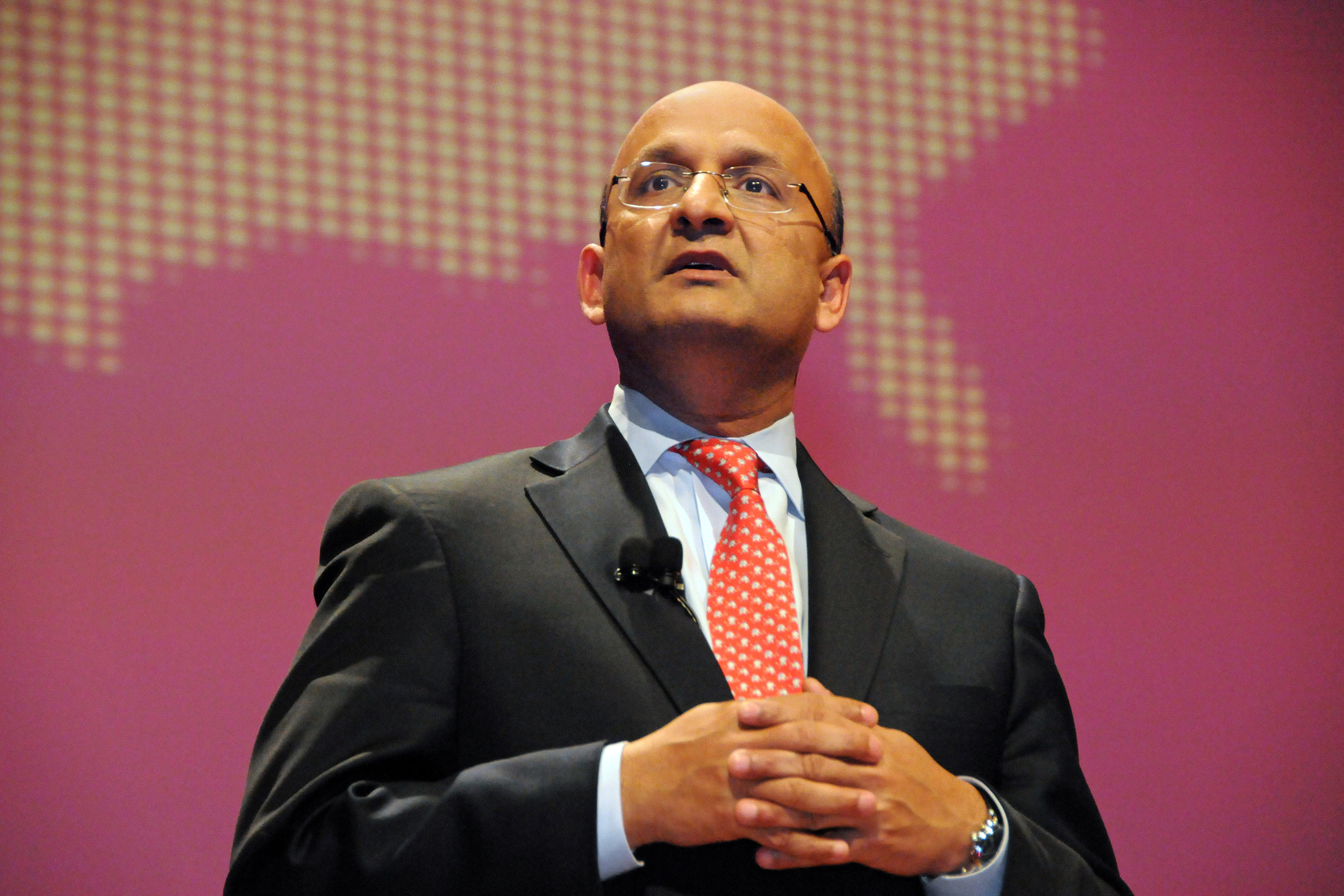
“The work is never done, so you just do have to do your part to continue to advance the work knowing that it will not be finished ever.”
GAZETTE: You were the first to live on campus in the dean’s residence in many decades. How did that experience change your perspective on the Business School community or the University?
NOHRIA: I must confess I knew that Harvard Business School was part of this big University that I understood by its reputation. But I think that this job has given me so much more appreciation for what all of the rest of Harvard has to offer and the extraordinary capacities that exist throughout this University — learning more about colleagues in some of the other professional Schools and FAS [Faculty of Arts and Sciences] and the College, just seeing the ways in which we could bring and knit this community together. Under former President [Drew] Faust’s leadership, the idea of One Harvard became an important idea. I really resonated with that. Once she announced it, I saw the power of One Harvard. The i-lab, one of the things that we introduced early on in my time as dean, provided evidence of the power of One Harvard. It wasn’t just an idea. You could see that if you brought this entrepreneurial community from all across the University together, everyone was better off. In trying to seek out these opportunities for partnerships, we launched two new M.S./M.B.A. programs, one with the Engineering School in engineering and another with FAS and the Medical School in life sciences and biotechnology. In many ways, I think that what I began to appreciate more is the extraordinary opportunities that we have if we can do more things together across Harvard.
GAZETTE: What will you miss most and what won’t you miss?
NOHRIA: I can tell you what I won’t miss. My life has been a series of 10 to 15 meetings a day, usually from 7 o’clock in the morning till late at night. And before COVID, I used to eat probably 10 meals a day with other people, whether it was breakfast with students, lunch with faculty members, or dinners with alumni, and I put on 30 pounds as a result. So not having to do all of those meals will be a welcome break. But I will miss the people. That’s what I’ll miss the most. I’ll miss the enormous variety of extraordinary people whom I got a chance to meet, from alumni all over the world to amazing faculty members whom I either have to cajole and influence to get things done or find polite ways of saying no to or excitedly say yes to, to the students whom I got a chance to meet. The other group that I didn’t know as well before I became dean, which is the amazing staff that we have. As a faculty member, you see a small fraction of the staff who really make the School work. And I have become so much more appreciative of the amazing staff. They are the backbone of our Business School. I’ll miss them very much.
GAZETTE: Have you offered any advice to the incoming dean?
NOHRIA: I was very fortunate. Jay Light was, for me, the role model of how I hope to hand things off to my successor, which is: Get out of their way; let them ask for advice. I used to ask Jay, early on, [to lunch] once a month, and as time passed on we had lunches once a semester. I really have great trust in the selection process that has led to Srikant Datar being our new dean. I’m having conversations with him once or twice a week to share my thoughts on every aspect of the School. And then when we’re done, I’m going to get out of his way and practice what Jay practiced with me.
GAZETTE: What’s next for you? Will you return to the School after your sabbatical?
NOHRIA: I haven’t made any decisions about what lies at the end of the year. I used to always say that being a professor at Harvard Business School was the best job in the world, before I got the opportunity to be dean. So returning to the faculty is certainly something that I will consider, and if that turns out to be what I do, I’d be very happy. But you only get these opportunities once in a lifetime to look and ask, “Is there anything else that I might do?” I spent 32 years at Harvard Business School. And if something else seems exciting, I think this is the moment to explore that. So I’m going to give that some thought too, but I haven’t made up my mind.
You know, I was 26 years old when I joined Harvard Business School. And so, in many ways, my entire adult life has been shaped by this School. When I joined, I was just hoping that I would make it through my first set of classes. This School has given me more opportunities to thrive and to grow and to develop and shape my life than I could have ever imagined. It’s been a place of work; it’s the place where I formed my friendships; it’s the place where I essentially developed a professional identity. And then, to become dean of Harvard Business School, it’s been an amazing privilege. And yet, I feel that the gratitude that I owe to the School remains in the School’s favor forever.
This interview has been edited for clarity and length.
